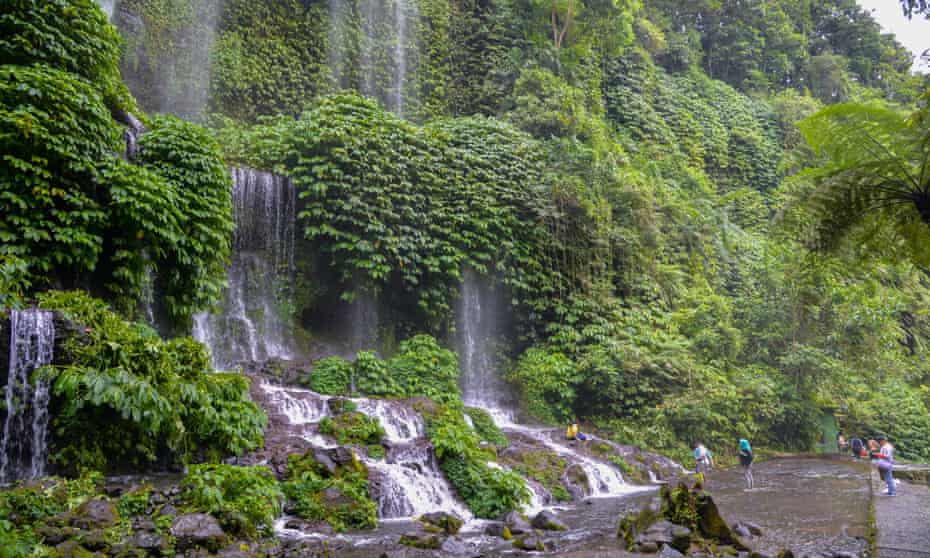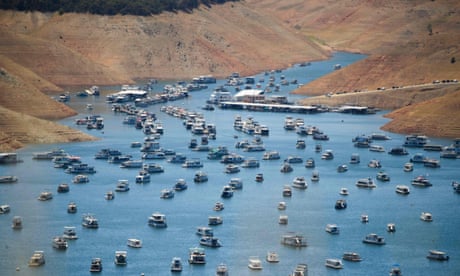Source >>>
New data suggests forests help keep the Earth at least half of a degree cooler, protecting us from the effects of climate crisis

Nina LakhaniThu 24 Mar 2022 05.00 GMT
The world’s forests play a far greater and more complex role in tackling climate crisis than previously thought, due to their physical effects on global and local temperatures, according to new research.
The role of forests as carbon sponges is well established. But comprehensive new data suggests that forests deliver climate benefits well beyond just storing carbon, helping to keep air near and far cool and moist due to the way they physically transform energy and water.
The study, which is the first to pinpoint the non-carbon dioxide benefits of different forests, found that the band of tropical rainforests spanning Latin America, central Africa and south-east Asia generate the most local and global benefits.Advertisementhttps://5910cb10abfd5ec7c3b51f2215415d9b.safeframe.googlesyndication.com/safeframe/1-0-38/html/container.html
Researchers from the US and Colombia found that overall forests keep the planet at least half of a degree Celsius cooler when biophysical effects – from chemical compounds to turbulence and the reflection of light – are combined with carbon dioxide.

In the tropics – from Brazil and Guatemala to Chad, Cameroon and Indonesia – the cooling effect is more than one degree. In short, while all forests provide multiple benefits, some are more important than others in keeping the climate stable.
“Despite the mounting evidence that forests deliver myriad climate benefits, trees are still viewed just as sticks of carbon by many policymakers in the climate change arena,” said Louis Verchot, principal scientist at the International Center for Tropical Agriculture (CIAT) and co-author of the study The Unseen Effects of Deforestation: Biophysical Effects on Climate. “Forests are key to mitigation, but also adaptation.”
Deforestation has devastating impacts on biodiversity, food security, and global heating. A recent report by the Intergovernmental Panel on Climate Change (IPCC) warned about catastrophic consequences humanity faces with rising temperatures.
The findings, published in the journal Frontiers in Forests and Global Change, suggest that forests are important to mitigation and adaptation, cooling the air and protecting us from droughts, extreme heat and floods caused by the climate breakdown.
Forest cooling is due to a range of biophysical effects such as the physical aspect of the trees’ wood, leaves and density, as opposed to biochemical factors such as the carbon.Advertisement
Researchers found that forests emit chemicals called biogenic volatile organic compounds (BVOCs) which create aerosols that reflect incoming energy and form clouds – both are cooling effects. While they also lead to a buildup of two greenhouse gases – ozone and methane – on balance, the cooling outweighs the warming.
Deep roots, efficient water use and so-called canopy roughness also enable forests to mitigate the impact of extreme heat.
These physical qualities allow trees to move heat and moisture away from the Earth’s surface where we live, which directly cools the local area and influences cloud formation and rainfall – which has ramifications far away.
In the tropics, where forest carbon storage and sequestration rates are highest, the biophysical effects of forests amplify the carbon benefits. In other words, tropical deforestation immediately increases extreme heat locally and decreases regional and local rainfall.
“The biophysical factors don’t cool the planet, but they do change the way we experience heat, and that matters,” said Deborah Lawrence, professor at the University of Virginia and the lead author. “The heart of the tropics is at the heart of the planet and these forests are critical for our survival.”
Better protection, expansion and improved management of the world’s forests are considered by many experts as among the most promising nature-based solutions.
Michael Coe, the tropics program director at the Woodwell Climate Research Center and a study co-author, said: “Without the forest cover we have now, the planet would be hotter and the weather more extreme. Forests provide us defense against the worst-case global warming scenarios.”You’ve read 12 articles in the last yearArticle counton
… as you’re joining us today from Indonesia, we have a small favour to ask. Tens of millions have placed their trust in the Guardian’s fearless journalism since we started publishing 200 years ago, turning to us in moments of crisis, uncertainty, solidarity and hope. More than 1.5 million supporters, from 180 countries, now power us financially – keeping us open to all, and fiercely independent.
Unlike many others, the Guardian has no shareholders and no billionaire owner. Just the determination and passion to deliver high-impact global reporting, always free from commercial or political influence. Reporting like this is vital for democracy, for fairness and to demand better from the powerful.
And we provide all this for free, for everyone to read. We do this because we believe in information equality. Greater numbers of people can keep track of the global events shaping our world, understand their impact on people and communities, and become inspired to take meaningful action. Millions can benefit from open access to quality, truthful news, regardless of their ability to pay for it.
If there were ever a time to join us, it is now. Every contribution, however big or small, powers our journalism and sustains our future. Support the Guardian from as little as $1 – it only takes a minute. If you can, please consider supporting us with a regular amount each month. Thank you.

